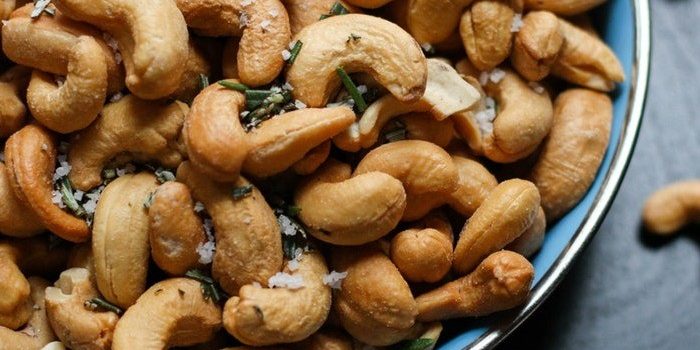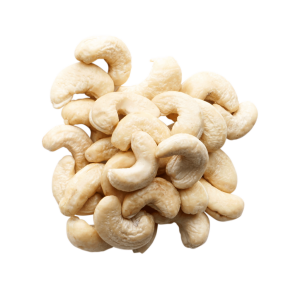Nowadays, the main producing countries of cashews are India, Cote d’Ivoire and Vietnam. East and West Africa export almost all of their cashew nuts to India, Vietnam and Brazil to be shelled and processed there.
The cashew tree does not require extensive irrigation or water-usage; it is environmentally friendly as the trees can grow in poor soils and dry climatic conditions. It is widely used in afforestation programs as it requires almost no maintenance.
Cashews and Health
Cashews are high in vitamin K and minerals such as iron, magnesium, phosphorus, zinc, manganese and copper. They are also a source of fiber, thiamin, pantothenic acid and minerals as potassium and selenium. Vitamin K contributes to normal blood clotting and to healthy bones therefore eating cashews may help you.
Facts and Figures
The cashew nut hangs outside and under a fleshy, edible, false fruit called the cashew apple, also known as the Marañón in Central America. Once ripened, the cashew apple (which can be apple or pear shaped) can be yellow, red, orange or pink. The apple can be eaten fresh or made into juice, and can be distilled to produce alcoholic drinks.
The cashew shell contains an inedible phenolic oil, known as cashew nut shell liquid (CNSL), which has many industrial uses. CNSL is useful for insecticidal, fungicidal, anti-termite and medicinal applications, as an additive in many plastic formulations, as well as in the manufacture of resins employed in the fields of friction materials, automobiles, surface coatings, adhesives, laminates and rubber compounding, among other applications.
A 2013 study also found that cashew shells, after extracting the CNSL, were superior to a number of liquid fuels, such as ethanol and methanol, as well as firewood, in terms of energy content.


